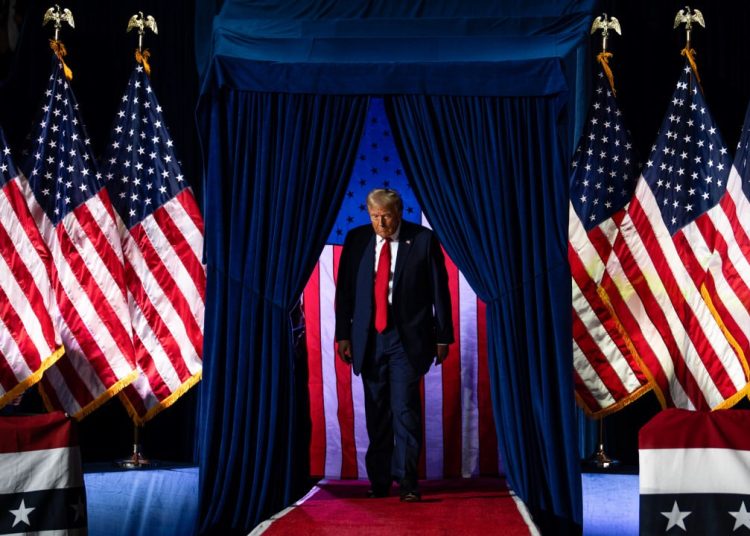The outcome of the United States presidential election reverberates far beyond its borders, with profound implications for nations worldwide. A number of countries could feel the impact as directly and intensely as Iran. Donald Trump’s return to the White House invites a complex analysis of what this could mean for Tehran, both in terms of opportunities and challenges.
Potential Advantages of a Trump Presidency for Iran
Some observers posit that a second Trump administration might pursue an end to the Ukraine conflict. Trump’s inclination towards concluding the war could, if successful, alleviate the pressures exerted on Iran under the pretext of its alleged support for Russia. This speculation gains further nuance in light of recent statements by Ukrainian President Volodymyr Zelenskyy, who acknowledged that Iran has not provided missiles to Russia yet—a remark that could provoke a shift in the narrative surrounding Iran’s involvement.
Moreover, Trump’s previous trade policies, particularly the imposition of tariffs on imports from European Union countries, strained relationships between the United States and its traditional allies. A resurgence of such policies could deepen rifts within Western alliances, potentially hampering the formation of unified fronts against Iran. This fragmentation could, in turn, offer Tehran a strategic advantage on the international stage.
Areas of Concern for Tehran
However, Trump’s potential return is not without significant concerns for Iran. Notably, Trump has alleged that Iran may be connected to assassination attempts against him. While the motivations behind these assertions, especially within the context of electoral politics, warrant scrutiny, they raise pertinent questions about how such beliefs could influence Trump’s policy posture towards Iran.
The composition of Trump’s foreign policy team in a second term is another critical factor. During his previous tenure, advisors and other senior officials played instrumental roles in stymieing diplomatic engagements with Tehran. The re-emergence of hardline figures could signal a continuation or even an intensification of adversarial policies. Otherwise, it could present relative opportunities for a limited or specific engagements.
Trump’s commitment to advancing the Abraham Accords poses additional apprehensions for Iran. His administration previously championed the normalization of relations between Israel and certain Arab states. Although the current Democratic administration has also pursued similar objectives—most notably seeking to broker normalization between Israel and Saudi Arabia—the volatile situation in Gaza and Israel’s recent actions have complicated these efforts. Yet, Trump’s return might reinvigorate this agenda, potentially fueling Iran’s concern in this regard.
The heightened tensions between Iran and Israel are of particular concern. Trump’s statements during escalating conflicts have included advocating for strikes on Iranian nuclear facilities. While such rhetoric may serve electoral purposes by appealing to pro-Israel constituencies, the possibility of policy translating into action cannot be discounted. There is also the potential for Trump to empower Israeli Prime Minister Benjamin Netanyahu to undertake more aggressive measures against Iran, thereby exacerbating regional instability.
The Complex Future of the JCPOA and US-Iran Relations
Trump’s unilateral withdrawal from the Joint Comprehensive Plan of Action (JCPOA) in 2018 and the subsequent imposition of severe sanctions affected Iran’s economy but failed to bring Tehran to a different negotiating table with Washington. Trump’s belief that the JCPOA was disproportionately beneficial to Iran underpinned his decision. Despite expectations that a Democratic successor might reverse this course, the Biden administration has largely continued on a similar trajectory, with officials stating that returning to the JCPOA is no longer a priority, at least without making amendments to the accord.
This continuity suggests that, regardless of the occupant of the Oval Office, the foundational challenges in US-Iran relations persist. A reevaluation of the nuclear accord appears necessary, with both Tehran and Washington potentially seeking to address new realities and demands. While Trump’s desired modifications to any future agreement might be more extensive, Tehran has its stipulated objectives. The pivotal question remains whether both sides can navigate their differences to arrive at a mutually acceptable framework.
Conclusion
Donald Trump’s possible reoccupation of the presidency does not inherently signify a replication of his previous foreign policy, particularly towards Iran. The nuances of a second term—including the characteristics of his advisory team and Iran’s own strategies—will critically shape the nature of US-Iran interactions. While a Trump administration might inadvertently benefit Iran through fostering divisions between the US and its allies or embracing isolationist tendencies, it could also present intensified challenges through stricter sanctions and bolstered support for Israel.
For Tehran, the path forward involves a careful assessment of these multifaceted possibilities, specifically against the backdrop the uncertainties of regional developments and international politics.






